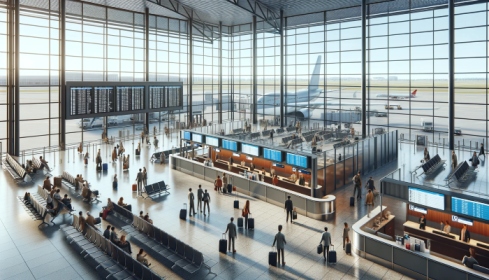Friday, August 30, 2024 Travelers across Asia are showing a growing interest in more comprehensive travel insurance coverage, particularly in response to the increasing threats of natural disasters and scams. A recent survey conducted by Klook, a leading travel-related services company, revealed that 38% of travelers now prioritize policies that protect against losses caused by extreme weather events and other natural disasters. This shift in demand highlights the evolving concerns of modern travelers, who are looking for more than just the traditional coverage for medical emergencies and lost baggage.
The survey, which gathered responses from 2,500 individuals across Malaysia, the Philippines, Singapore, South Korea, and Hong Kong, underscores a rising awareness among travelers about the risks they might face while exploring new destinations. As climate-related crises continue to disrupt tourism, with incidents like the wildfires in Rhodes last summer forcing thousands of tourists to evacuate, the need for robust insurance coverage has become more apparent. The Growing Importance of Safety and Security Klook’s research indicated that today’s travelers are increasingly mindful of their safety and security, with many seeking to avoid potential scams and unforeseen disasters.

The desire for “peace of mind” while traveling is driving more travelers to opt for insurance policies that offer extensive protection. Chuan Sheng Soong, CEO of Klook Protect, emphasized that modern travelers are looking for more immersive experiences but are also more conscious of the risks involved, particularly those related to natural disasters and scams. In response to these concerns, more than 40% of travelers from Hong Kong expressed a willingness to spend HK$1,000 (US$128) or more on travel insurance per trip, with 15% opting for premium plans that promise maximum security.
These premium plans often include coverage for trip cancellations due to natural disasters, ensuring that travelers are compensated for their losses in case of extreme weather events or other crises. Impact on the Tourism Industry The increasing demand for comprehensive travel insurance is expected to have a significant impact on the tourism industry. As travelers become more aware of the risks associated with natural disasters and scams, they are likely to seek destinations that offer reliable safety and security measures.
This trend could lead to a shift in travel patterns, with tourists favoring locations where they feel protected and where they can purchase adequate insurance coverage. Furthermore, the tourism industry may see a rise in collaborations between insurance providers and travel companies to offer more tailored insurance products. These products could include destination-specific security advice, which 42% of survey respondents indicated they would like to receive from their insurance providers.
Such measures could enhance the overall travel experience by providing travelers with the information and protection they need to feel secure. Global Effects on Travelers On a global scale, the findings of the Klook survey reflect a broader trend among travelers who are becoming increasingly cautious about their safety while abroad. The demand for insurance that covers natural disasters, scams, and other unforeseen events is likely to grow beyond Asia, influencing how travel insurance is marketed and sold worldwide.
Insurance providers may need to expand their offerings to include more comprehensive coverage options that address the unique concerns of modern travelers. This could lead to the development of new products that cater specifically to the needs of travelers in different regions, ensuring that they are adequately protected no matter where they go. In conclusion, as travelers in Asia seek better insurance against natural disasters and scams, the travel industry is poised to respond with more comprehensive and tailored insurance products.
This shift in demand highlights the importance of safety and security in the travel experience, influencing travel patterns and potentially reshaping the global tourism landscape..



















